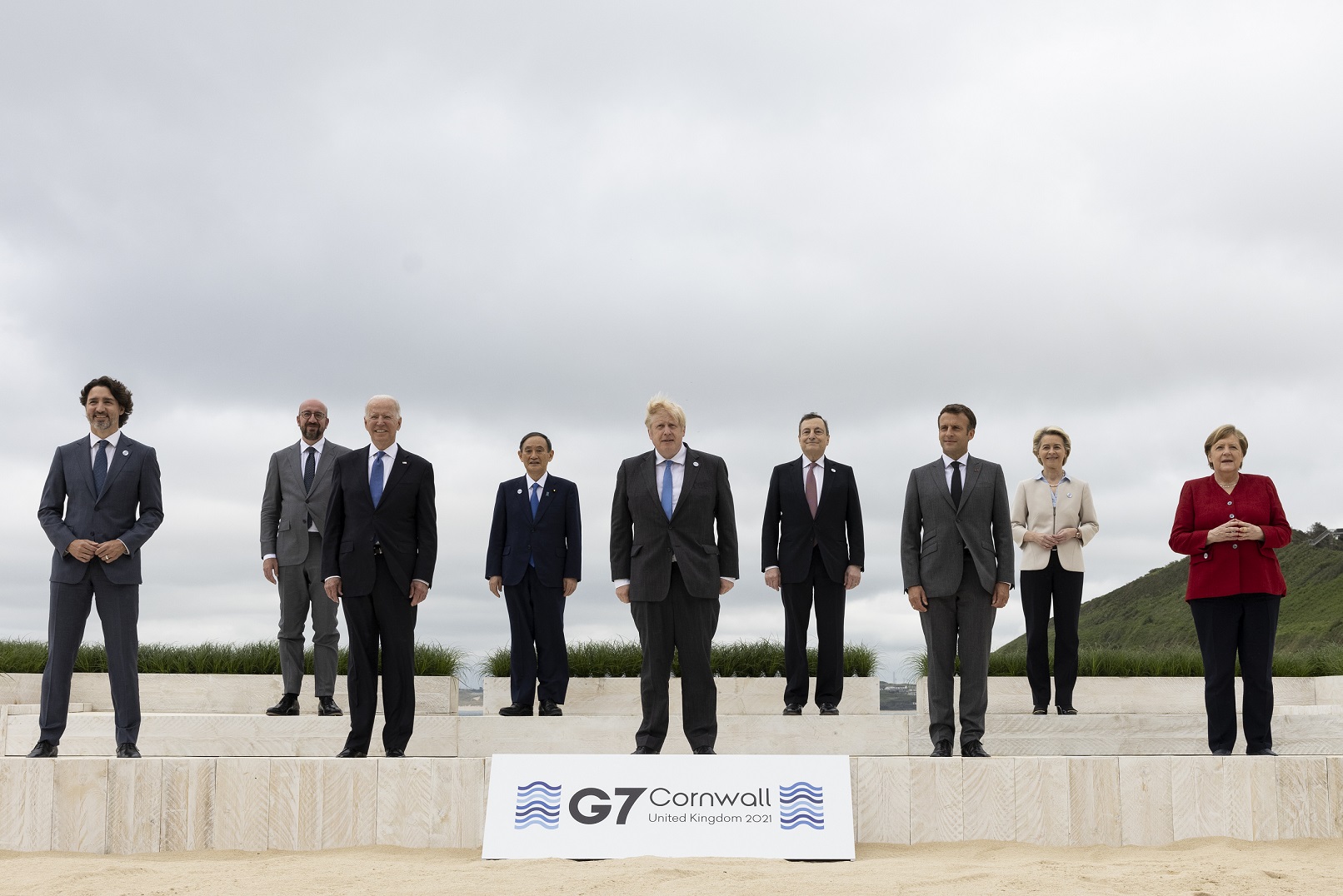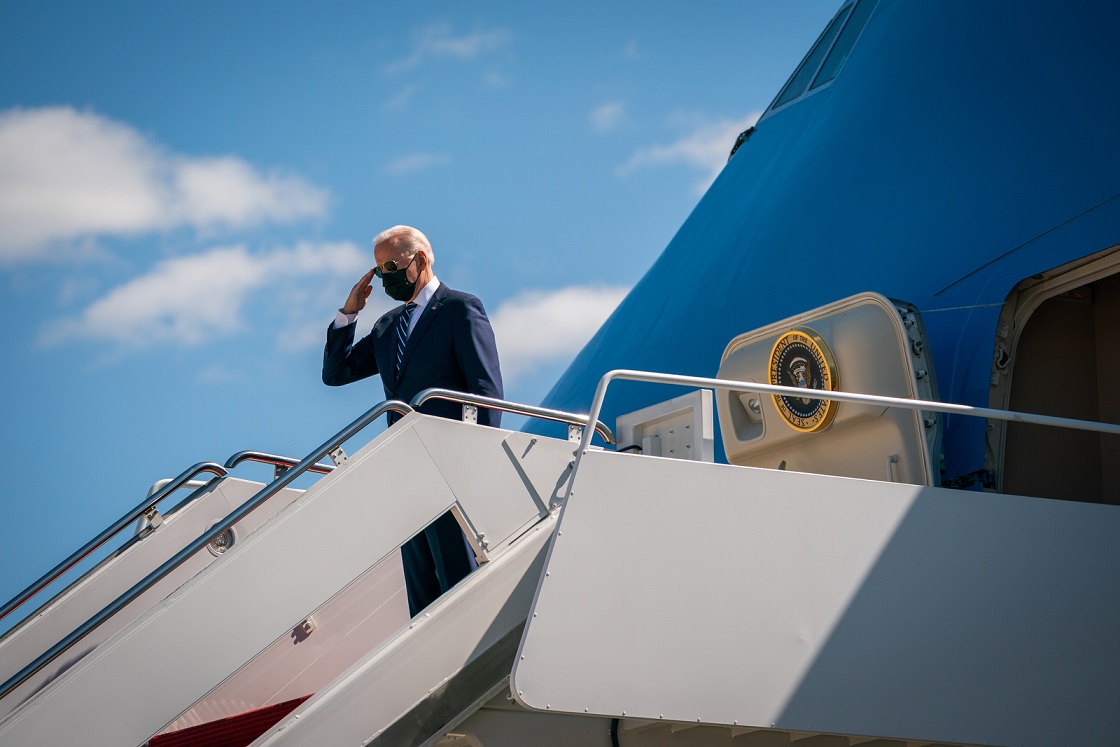Publications
INSS Insight No. 1491, June 23, 2021
Joe Biden made his first presidential visit outside the United States to Europe, attending the G7 summit, the NATO summit, and a meeting with EU leaders. At the end of the visit, Biden met with Russian President Vladimir Putin in Geneva. For the US President, the trip was “about realizing America’s renewed commitment to [its] allies and partners, and demonstrating the capacity of democracies to both meet the challenges and deter the threats of this new age.” Specifically, the administration is interested in mobilizing US allies to align with the United States in tackling its leading foreign policy issue – China. Biden seems to have embarked on a campaign to restore US-European relations, and even if disagreements remain, managed to convey that China poses a challenge to democracies. His ability to illustrate to European leaders that his conduct is different from that of his predecessor, Donald Trump, will subsequently be put to the test, in accordance with their willingness to coordinate their approach toward China with the US approach. The new government in Israel must also reassess its conduct vis-à-vis China, and specifically, internalize the US administration’s expectation that allies cooperate on the Chinese challenge, which in its view threatens the security of democracies on several levels.
After devoting his first months in office primarily to domestic issues, with an emphasis on the eradication of COVID-19, economic advancement, and social issues, President Joe Biden paid his first presidential visit outside the United States to Europe. During his visit (June 9-16, 2021), he attended the G7 summit, the NATO summit, and met with European Union leaders. At the end of the visit, Biden met with Russian President Vladimir Putin in Geneva. In an op-ed published on the eve of the trip, Biden stated that the trip was “about realizing America’s renewed commitment to [its] allies and partners and demonstrating the capacity of democracies to both meet the challenges and deter the threats of this new age." Biden's visit occurred following four traumatic years for transatlantic partnership, against the background of the need to restore trust in the partnership, and fear in Europe that at the end of Biden's four years, the situation could change again.
President Biden seems to have achieved the first goal he set for himself – to start off the journey to restore United States relations with Europe and renew alliances with allies on the right foot. Especially important is demonstrating to the world that his conduct is different from that of President Trump and that under his leadership the United States has returned to a leadership position. In Biden's view, mutual trust and cooperation with "allies who see the world through the same lens as the United States" are basic conditions for improve transnational challenges, including pandemics, economic crises, and climate change. Indeed, overall, European leaders expressed satisfaction with the developing dialogue between them and President Biden, and felt that even if all the disputes with the US administration were not resolved in one take, the meetings were successful.

However, disagreements between the United States and Europe over trade and economic issues and the fight against climate change remain. The parties will have to resolve these disputes by relying on good faith, as was demonstrated during Biden's visit. In this context, after years of conflicts, mutual charges, and tariffs totaling more than $12 billion, the willingness of both parties (the US and the EU) to reach a compromise in the conflict over illegal subsidies granted to their aviation industries (Boeing in the United States and Airbus in Europe) stands out. As a gesture of good will toward German Chancellor Angela Merkel, a key partner in achieving its goals, the US administration expressed its willingness to suspend further sanctions on Germany (imposed during the Trump administration) in relation to the Nord Stream-2 gas pipeline project, which is expected to double the gas supply from Russia to Germany. This decision has been criticized by Ukraine, Poland, and the Baltic states, who strongly oppose the pipeline, as well as by Republican and Democratic lawmakers.
In President Biden's view, the restoration of relations with allies and the return of the United States to a leadership position contributes to the advancement of the central foreign policy goals of the administration: mobilization of countries to align with the United States in tackling China, the number one American adversary today, and the formulation of a common approach toward Russia. The administration seems to have succeeded in conveying the message that the ability to tackle the many complex challenges lies in democracies confronting authoritarian regimes together. Not only do they threaten the world order that the United States has formulated and led since the end of World War II, but they seek to replace it.
The joint messages of the three meetings – G7, NATO, and the European Union – sharpen the common message vis-à-vis China. Particularly notable is the announcement issued at the end of the NATO summit, which does not define China as an "enemy" but states it is a systemic “security challenge" to the world order. Having not previously been at the center of the transatlantic alliance's agenda, the statement emphasizes that "China's stated ambitions and assertive behaviour present systemic challenges to the rules-based international order and to areas relevant to Alliance security." EU members, in a demonstration of support with Biden's aggressive stance against China, were partners in a joint declaration against human rights violations and working conditions in this autocratic country.
President Biden seems to have succeeded in convincing the leaders of the challenge that China poses to democracies. However, their statements following the meeting with him indicate that not everyone agrees with the administration's strict definition of the Chinese threat – and at least some allies are still skeptical about whether the American "crusade" against China will actually serve their national interests. The question of how much they will practically allow confrontation with China remains open. NATO Secretary General Jens Stoltenberg stressed that the main challenge remains Russia and that NATO does not intend to make moves toward Asia, although the security challenges posed by China's rise must be addressed – even if some of the NATO member states have economic ties with China. Chancellor Merkel said at the end of the leaders' meeting that China is a rival in many ways, and an ally in many others. At a press conference in Brussels, Merkel stated that looking at the cyber threats and the hybrid threats China poses, as well as its cooperation with Russia, shows that China cannot be ignored and a suitable balance must be found in relations with it. Evidence of disagreement can also be found in the characterization of China in the G7 statements versus NATO's communiqué: The G7 summit refrained from referring to China as a "threat" and instead spoke of a "challenge," whereas in the context of Russia, the United States and its allies share identical assessments and conclusions.
Biden's meeting with Putin, as well as his meeting with Turkish President Recep Tayyip Erdogan (on the sidelines of the NATO summit) allowed him to convey a message about the difference between democracies and non-democratic countries. With Putin, Biden displayed a positive attitude but his intention was to clarify his administration’s red lines, in order not to reach a confrontation and to emphasize that Russia’s crossing these lines would require an American response. In media reports following the Biden-Putin meeting, the US desire to avoid worsening relations, which are at an unprecedented low, was evident. The decisions by the United States and Russia to return their ambassadors, to open a dialogue on strategic stability, and to establish rules of the game in the cyber realm all indicate an attempt to normalize the severed ties. However, it remains to be seen, whether Biden's desire to restore predictability and stability to US-Russia relations and the ability to anticipate steps will materialize due to Putin's conflicting interest.
Overall, Middle East issues occupied only a marginal place during the meetings in Europe. Apart from the issue of Iran and Syria, especially with regard to arms control, no other issues arose, including the Israeli-Palestinian issue. Prominent in this context is the joint determination by the United States and the European Union that the two sides express their support for the negotiations in Vienna and for the US return to the nuclear agreement, as well as Iran's return to full compliance with the agreement. In their common view, the agreement was and remains the best way to ensure that the Iranian nuclear program is restricted to peaceful purposes and that the monitoring of the nuclear program continues.
President Biden's success in instilling in the administration's allies the message that in its view China is the main challenge and that the preferred way to deal with it is to form coalitions, requires the new government in Israel to reassess its conduct with China. It especially demands internalizing the guiding message of Biden's visit, that the administration expects its allies to cooperate in the face of this complex threat to the security of democracies. In this context, as with other issues, especially Iran and the Palestinian issue, it would be appropriate to have a discreet dialogue with the administration based on mutual trust and a good understanding of the parties' respective interests – both common and conflicting.



